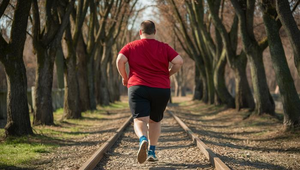Health/medicine
Epidurals can cut risk of severe childbirth complications by 35 pc: Study
London, May 23 (IANS/DPA) Women who have an epidural during labour face a lower risk of severe complications during childbirth, according to a study on Thursday.
Making epidurals more widely available and providing more information to those who would benefit from one is important, researchers said.
The study by the University of Glasgow and the University of Bristol involved 567,216 women who were in labour in Scottish hospitals run by the UK’s National Health Service (NHS) from 2007 and 2019 and went on to give birth vaginally or by an unplanned caesarean section.
Of the total, some 125,024 women had an epidural, which is administered through an injection in the back and blocks pain in certain parts of the body.
Researchers analysed the rate of serious complications, including heart attacks, eclampsia, and hysterectomies during childbirth.
Having an epidural cut the risk of these events by 35 per cent, the study found. They were also more effective in women who went into labour prematurely, or who had previous medical or obstetric conditions.
Researchers said their findings, published in The BMJ, suggest “expanding access to epidural analgesia for all women during labour, and particularly for those at greatest risk, could improve maternal health”.
“This finding underscores the need to ensure access to epidurals, particularly for those who are most vulnerable – women facing higher medical risks or delivering prematurely,” said lead author Professor Rachel Kearns from the University of Glasgow, UK.
“By broadening access and improving awareness, we can significantly reduce the risk of serious health outcomes and ensure safer childbirth experiences,” she added.
Instances of severe complications during childbirth almost doubled between 2009 and 2018 in the UK, according to researchers.
They said this reflects the trend of people waiting until they are older to have babies or being obese.
“That women, and their partners, have control over their treatment during pregnancy, including the use of an epidural during labour, is important,” said Prof Deborah Lawlor of the University of Bristol, UK.
“It is also important that women who would benefit from an epidural to prevent them becoming seriously ill are provided with easy-to-understand information to help them make an informed decision,” she added.
–IANS/DPA
rvt/sha
Health/medicine
Lucknow hospital surgically treats ‘suicide disease’
Lucknow, June 16 (IANS) Balrampur Hospital in Lucknow has become the first district hospital to offer surgical treatment for Trigeminal Neuralgia, also known as the suicide disease (mainly because of the high-level pain that the patient suffers).
This achievement follows the successful operation of Ashok Kumar, 46, who was suffering from the condition. The patient had to spend merely Rs 400 for the surgery.
Bollywood star Salman Khan also had this disease. Trigeminal neuralgia affects about 10-12 out of 100,000 people and is more frequently found in women.
Ashok was experiencing severe pain on the right side of his face for six years. Despite using painkillers and undergoing treatments since the age of 40, he found no relief. Later, considering his financial constraints, some persons recommended him to visit Balrampur Hospital.
Ashok sought help from Dr Vinod Tiwari, a neurosurgeon at Balrampur Hospital. Dr Tiwari noted that Kumar’s right facial pain was triggered by minor activities such as wind, brushing his teeth, gargling, eating, drinking water, or a light touch on his right cheek, causing him hours of excruciating pain.
“I told him if it is not cured by medicines, then surgery is the only solution,” said Dr Tiwari.
Further, MRI scan revealed that an artery was compressing the fifth nerve on the right side of Kumar’s brain, leading to unbearable pain. The medical team decided to perform surgery to relieve the compression and ease the patient’s suffering.
“I and my team at Balrampur Hospital decided to perform the surgery to remove the tumour and decompress the nerve,” Dr Tiwari explained.
The operation, which took over three hours under general anaesthesia, was successful. Ashok is currently recovering in ICU ward.
The patient can speak normally and is no longer experiencing pain, Dr Tiwari said.
Dr Pawan Kumar, Chief Superintendent at Balrampur Hospital, said: “Due to this disease, the patient is at risk of paralysis due to brain pressure.”
–IANS
amita/kvd
Health/medicine
Protein that boosts body's immunity against cancer discovered


New Delhi, June 15 (IANS) A team of researchers has discovered a protein which can also play a critical role in the immune system’s defence against cancer.
Researchers at the University of Turku in Finland found TIMP-1, a protein traditionally known to prevent damage to the body’s cells and tissues.
They discovered this protein also has a key role in the body’s immunity against cancer, a finding which can improve the effectiveness of current cancer treatments.
TIMP-1 protein is produced by dendritic cells, which are responsible for initiating immune responses and boosting the immune system’s ability to recognise and destroy cancer cells.
Researcher Carlos Rogerio Figueiredo from the University of Turku said for patients deficient in TIMP-1 expression, our discovery helps create rational therapeutic innovations.
Figueiredo added that the findings are also relevant for fighting infections by viruses and bacteria, as the process is part of a universal mechanism that fights microorganisms and cancer in a similar fashion.
The study was published in the journal Genes & Immunity, which is part of the Nature Portfolio series.
The study used samples from the Finnish Auria Biobank for clinical-oriented discoveries, which were further validated with the latest biochemical and immunological tools to propose a new molecular view of how the body fights cancer.
–IANS
na/pgh
Health/medicine
How fasting can help immune system better fight cancer


New Delhi, June 15 (IANS) Fasting has a myriad of benefits, and now, a team of researchers has claimed that it can even reprogramme the metabolism of natural killer cells, helping them to survive in the harsh environment in and around tumours while also improving their cancer-fighting ability
The new study in mice from researchers at Memorial Sloan Kettering Cancer Center (MSK) in New York revealed that fasting may help the body defend against cancer, starving cancer cells of the nutrients they need to grow.
“Tumours are very hungry. They take up essential nutrients, creating a hostile environment often rich in lipids that are detrimental to most immune cells,” according to immunologist Joseph Sun, the study’s senior author.
Fasting reprogrammes these natural killer cells (a type of white blood cell) to better survive in this suppressive environment, he said in a paper published in the journal Immunity.
For the study, mice with cancer were denied food for 24 hours twice a week, and then allowed to eat freely in between fasts.
Just like humans, the mice saw a drop in their glucose levels and a rise in free fatty acids, which are lipids released by fat cells that can serve as an alternative energy source when other nutrients are not present, according to Rebecca Delconte, lead author of the study.
During each of these fasting cycles, natural killer cells learned to use these fatty acids as an alternative fuel source to glucose.
This optimised their anti-cancer response because the tumor microenvironment contains a high concentration of lipids, and now they were able to enter the tumour and survive better because of this metabolic training, the authors noted.
While more research is needed, the results suggest fasting could be a strategy to improve immune responses to make immunotherapy more effective.
–IANS
na/svn
Health/medicine
Exercise in evening hours improves glucose regulation, finds study


New Delhi, June 15 (IANS) For people at risk of developing insulin resistance or type 2 diabetes, here is some good news. Physical activity in the evening has been found to improve glucose regulation, especially in overweight and obese adults.
The results of the new study, published in the journal Obesity, showed that accumulating more moderate-to-vigorous physical activity in the evening — between 6 p.m. and 12 midnight — appears to have a positive effect on glucose regulation in men and women who are overweight or obese.
“Choosing the ideal time of day seems to be an emerging strategy to enhance the benefits of physical activity on glucose metabolism, especially for those with insulin resistance or at risk of developing type 2 diabetes,” the researchers note.
In addition, the benefits of physical activity are greater in people who have some form of impaired glucose metabolism, such as elevated levels of glucose or fasting insulin resistance, according to scientists from the University of Granada (UGR) in Spain.
The results were similar for both men and women.
A total of 186 overweight or obese adults (50 per cent of whom were women) with an average age of 47 years took part in the study.
These participants wore an accelerometer and a continuous glucose monitor for 14 days in order to measure their physical activity and glucose levels 24 hours a day.
The results highlight the importance of considering the time of day when prescribing physical activity.
“This information may be crucial in improving the effectiveness of exercise interventions in these groups,” the authors noted.
It was previously unknown whether being more active at a particular time of day (morning, afternoon or evening) could maximise the cardio-metabolic benefits of physical activity.
–IANS
na/
Health/medicine
Gene therapy shows encouraging results in sickle cell patients


San Francisco, June 15 (IANS) Scientists have reported an innovative gene-based treatment that modifies a patient’s own blood-forming stem cells to correct the mutation responsible for sickle cell disease.
The clinical trial aimed at discovering a cure for sickle cell disease, a painful genetic blood disorder with limited treatment options.
The 18 patients, two of whom were treated at Cleveland Clinic Children’s in the US, underwent a procedure where their stem cells were first collected for gene editing.
The trial was conducted as part of the multi-centre ‘RUBY Trial.’
They received chemotherapy to clear remaining bone marrow, making room for the repaired cells which were later infused back into their body.
The treatment was well-tolerated with no serious side effects reported. Following treatment, all patients successfully regained their white blood cells and platelets.
The researchers noted that all patients have remained free of painful events since treatment, and those followed for five months or greater have seen their anemia resolve.
“It’s encouraging that this gene-editing treatment continues to show promising efficacy for sickle cell patients,” said Rabi Hanna from Cleveland Clinic Children’s and the RUBY trial’s presenting investigator.
Sickle cell disease is a genetic blood disorder that causes red blood cells to be misshapen like a sickle.
In sickle cell disease, the abnormal cells block blood flow and break apart easily, leading to problems like severe pain, liver and heart issues, and a shorter life span, typically in the mid-40s.
–IANS
na/
-
Video1 year ago
PM Modi Attacks Congress in Karnataka with “Kerala Story”
-
Cricket1 year ago
CSK players rejoice 5th IPL title with their families (Pics)
-
Politics1 year ago
Siddaramaiah & DK Shivakumar sworn in as Chief Minister & Deputy CM respectively
-
Entertainment12 months ago
Karan Deol weds his longtime Girlfriend Drisha Acharya (Pics)
-
Entertainment1 year ago
Urvashi Rautela dazzles on Cannes 2023 red carpet (Pics)
-
Entertainment1 year ago
Sunny Leone gets ready for Kennedy premiere in Cannes (Pics)
-
Entertainment1 year ago
Alia Bhatt looks crazy beautiful in Prabal Gurung creation at MET GALA 2023 (Pics)
-
Cricket1 year ago
Sakshi & Ziva Dhoni enjoy their time during CSK VS MI match

































